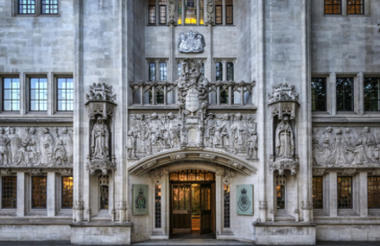The care sector has weathered unimaginable pressures and challenges over the past 15 months, and for those organisations that are registered charities, financial challenges have added to the stresses on trustees and staff.
These have included:
- Problems in collecting care fees.
- Extra staff costs arising from illness and self-isolation.
- The cost of making care and working environments safe.
- Delays in welcoming new residents.
The generosity of supporters and the goodwill of staff and volunteers has definitely helped. However, things will remain challenging for some time, and the impact on charities will become more acute in 2021 as government support declines and economic conditions test the ability of families and donors to help.
One area that has been uncertain for care charities is the national minimum wage (NMW), with ongoing legal debates, decisions and appeals. However the recent Supreme Court judgement regarding the Mencap case has shifted the issue away from the courts and opened up the possibility for a review of the regulations.
Mencap and sleep-in care workers
Earlier this year, the Supreme Court ruled in favour of Mencap that sleep-in carers are not entitled to be paid NMW for the hours they spend asleep.
The case (Tomlinson-Blake v Mencap), had been ongoing for several years, and concerned a care worker who would be occasionally required to provide support to residents during the night if required, and who was otherwise entitled to sleep until the beginning of their daytime shift.
The Supreme Court confirmed the Court of Appeal ruling (2019) that care workers are not entitled to NMW whilst waiting to be called out to provide patient care.
The Court concluded that under both the original 1999 and 2015 NMW regulations the worker was only entitled to be paid for the actual hours worked. Whilst the decision was no doubt disappointing for the claimant (and thousands of other care workers), employers can breathe an enormous sigh of relief. The sector was facing estimated back-pay claims of £400m (much of which they did not have the funds to pay) which would have been devastating. This is before we consider the financial challenges the Covid-19 pandemic has presented over the past year.
Will the government consider any changes to the NMW regulations?
We find that many employers find the regulations cumbersome to administer and at odds with the income tax and National Insurance rules associated with operating a payroll.
It will be interesting to see if the government launches any sort of consultation process, in order to understand the challenges the sector encounters when seeking to correctly apply the NMW regulations. The following are examples of the challenges many employers face in trying to comply with the regulations:
- Calculating the hourly rate of pay.
- Monitoring the hours worked.
- Determining when an employee is a salaried or “unmeasured worker”.
- Correctly calculating the minimum wage for the relevant pay period.
- Recognising and treating deductions for the purposes of the regulations.
- Accounting for circumstances where an employee is asked to attend a meeting at the beginning/end of their normal working day.
Whilst the Supreme Court decision in the Mencap case is final, the NMW regulations will continue to present many challenges to the sector. It is important that employers ensure they are correctly applying the NMW regulations. Not only are there financial implications for “getting it wrong”, but the reputational risks of being “named and shamed” can be equally damaging too.
Adam Halsey is charities partner and Nick Bustin is director of employment taxes at haysmacintyre









